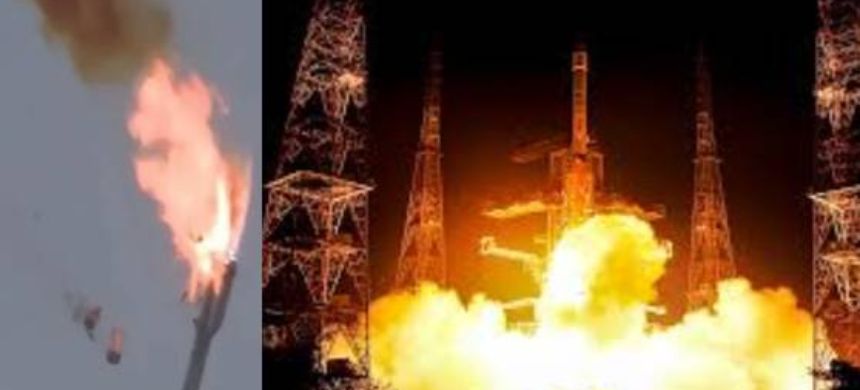The Indian Space Research Organisation (ISRO) encountered a rare failure when its PSLV-C61 mission was unable to place the EOS-09 Earth observation satellite into orbit due to an anomaly in the rocket’s third stage. The launch took place around 6 a.m. from the Satish Dhawan Space Centre in Sriharikota, but the vehicle veered off course during the third-stage propulsion phase.
Roughly 203 seconds into the flight, the anomaly prompted ISRO to initiate the flight termination system to ensure safety. Preliminary data indicates that the solid-fueled third stage underperformed, preventing the 1,696-kg satellite—equipped with C-band Synthetic Aperture Radar (SAR)—from reaching its intended 524-km sun-synchronous orbit. The satellite was designed for applications like border surveillance, national security, and disaster response.
Read more: Pakistan, India Exchange Prisoners Amid Renewed Diplomatic Tensions
ISRO Chairman V. Narayanan acknowledged the malfunction of PSLV during a live broadcast and confirmed that a failure analysis committee had been formed. Engineers are currently investigating factors such as fuel flow, nozzle performance, and structural issues.
This marks the third full failure in the PSLV program’s 63-launch history, and the first since 2017. Notably, it ends a streak of 58 consecutive successful PSLV missions, and occurred during ISRO’s 101st space launch.
The mission was also tied to India’s larger goal of launching a 52-satellite SAR constellation for enhanced imaging and surveillance capabilities. That initiative will now face temporary delays.
Despite the setback, ISRO officials reassured the public that debris will fall harmlessly and that no ground damage is expected. The agency still has four PSLV launches planned for 2025 and remains known for its resilience, often bouncing back from setbacks swiftly.











